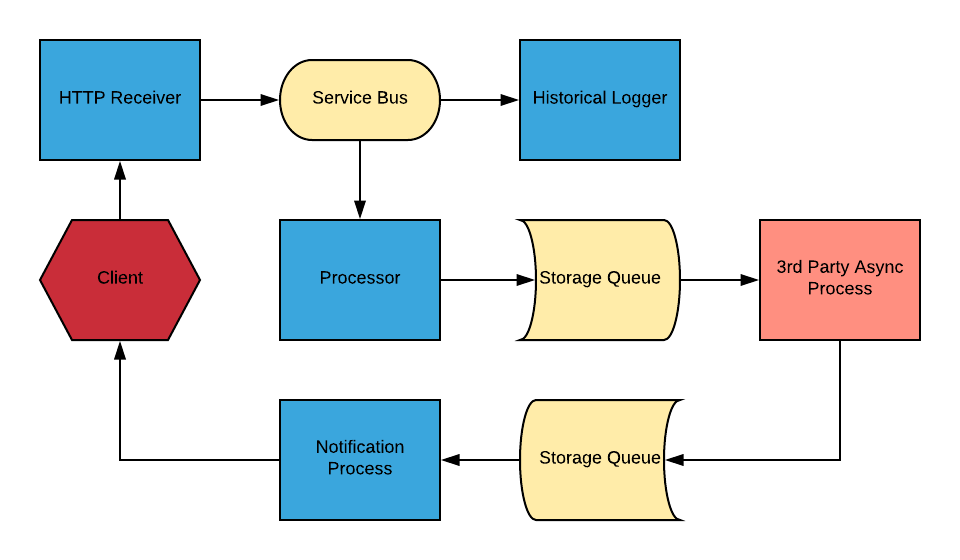Tracking Asynchronous Process Completion with Azure Application Insights
Recently I was working with a client that had developed several Azure based micro-services intended to run as an HTTP triggered process, running asynchronously from the client's perspective. In other words, each pass through the system started with an HTTP request, for which the payload was then passed through a series of micro-services utilizing a combination of service buses and storage queues. It looks something like this:

The details are not terribly important - just note that each of the blue boxes in this diagram represents a separate Azure hosted ASP.NET WebAPI or Azure Function based micro-service. Because these were all separate components communicating via service bus and storage queues, plus one black box 3rd party system, message loss and round trip request duration was difficult to track and build into an easily consumable dashboard.
To address this problem, a solution was developed utilizing a combination of custom telemetry events logged by each system component and Application Insights queries .
